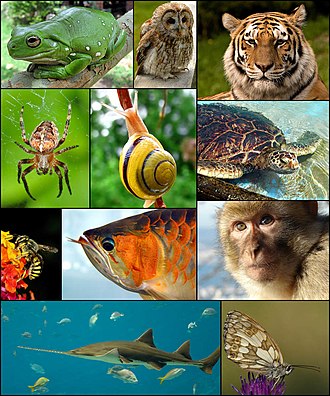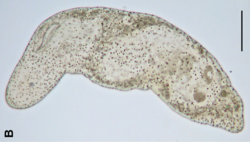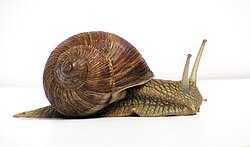Bilateria
The Bilateria are animals which are bilaterally symmetrical. They have front and a back end, an upside and downside, and a left and right side. Most animals are bilateral.
| Bilateria Temporal range: Ediacaran – Recent
| |
|---|---|

| |
| Diversity of bilaterians. | |
| Scientific classification | |
| Kingdom: | Animalia |
| Clade: | ParaHoxozoa |
| Clade: | Bilateria |
Main subgroups
- Deuterostomia
- Echinodermata (20,000 species, 7000 living)
- Chordata. mostly Vertebrata (63,000 species)
- Hemichordata
- Protostomia
- Ecdysozoa (6 to 20 million species) [1]
- Nematoda (20,000 species known +many more)
- Arthropoda (one to 10 million species)
- Lophotrochozoa
- Annelida (17,000 species)
- Platyhelminthes (20,000+ species)
- Mollusca (85,000+ species)
- Brachiopoda (5,000 fossil species)
- Rhombozoa
- Platyzoa
- Minor phyla (like Chaetognatha)
- Ecdysozoa (6 to 20 million species) [1]
Numbers are approximate; extinct species numbers cannot be known for most phyla.
Bilateria Media
One view is that the original bilaterian was a marine worm somewhat like Xenoturbella.
Ikaria wariootia, living 571–539 million years ago, is one of the oldest bilaterians identified.
Related pages
References
- ↑ Erwin T.L. 1982. Tropical forests: their richness in Coleoptera and other arthropod species. Coleopterists Bulletin. 36, 74/5. See also Coevolution#Numbers of species






